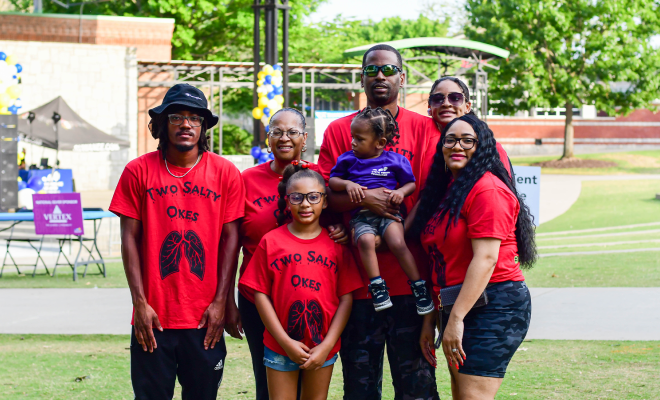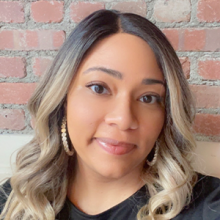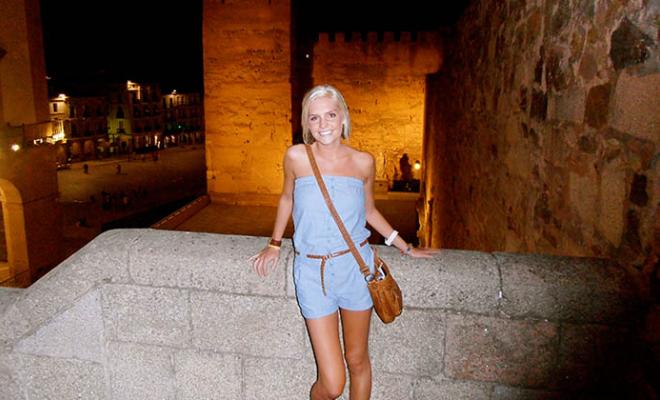Unbeknownst to us at the time, cystic fibrosis entered our lives when our son was born in 2001. Between 2001 and 2005, we took numerous trips to the emergency room and doctor’s office before our baby was diagnosed with CF. During that time, we struggled watching our baby's health decline in front of us with him not growing and being constantly sick. We were accused of not feeding him or caring for him properly. As parents, we felt helpless and hopeless.
In 2005 when he was finally diagnosed, it was a great relief to know that what was happening to our son was “something.” It was also a very scary moment because we had never heard of cystic fibrosis. At that time, the average life expectancy of someone with CF was 32 years old. That same year, we evacuated New Orleans during Hurricane Katrina and moved to Atlanta. Atlanta has been our home ever since, and we got acclimated to the CF therapy regimen, receiving care at Children’s Healthcare of Atlanta at Scottish Rite.
As years passed and my son grew older, I wanted him to feel represented and recognized for having this disease as others who did not look like him were. But sadly, it never happened. I also realized that all the brochures, websites, and everything CF related was not representative of an African American person with CF. African American people with CF have a very different experience. Not only is there a stigma associated with having the disease, but people actually question it. We have received questions like: Are you sure your child has CF? Do you think that it could be sickle cell disease? Black people don’t get cystic fibrosis — do you have Caucasian people in your family?
When we went to Great Strides events, the people at the local chapter embraced us. However, we were unicorns, and you could count all the Black people there. It felt as though we belonged because at least the people knew about cystic fibrosis, but in another sense we did not belong.
There are scholarships for people with CF to help pay for the cost of college, and when my son started high school, I started to look into them. I researched the availability of scholarships and checked the drug manufacturers’ websites. I searched through ten years of scholarship recipients from one drug manufacturer and there was not one African American recipient! That’s when I started asking questions because — surely — we could not be the only family with an African American child who has cystic fibrosis and takes this medicine every month. I emailed the drug maker, and they provided a copy of their fair practices but that is all. It was a slap in the face and — at that point — I knew there was a huge problem with diversity, equity and inclusion within the CF population and organizations.
It made me feel really sad and hopeless once again that my child had no representation. As a mother to an African American son, my concern was, what do I tell him? Why does no one with CF look like him? Why are we fighting to be accepted as having a life-threatening disease?
These feelings never went away, but we learned to accept things the way that they were at the time. Sometimes you get tired when your concerns go unheard for decades. So, we learned to manage and make the best of it all.
Then in 2020, during the pandemic, we had our fourth baby. From the time we conceived all the way until the delivery date, we made sure to tell the doctors and hospitals that we both carry a copy of the CFTR gene and that we already have a son with CF. At delivery, we made extra efforts to reiterate this fact. The hospital administered the newborn screening and everything seemed fine. I licked my baby after delivering him trying to determine if he was salty or not. Some days he was saltier than others. But after three days, the baby was very restless and would cry profusely all the time. It had been 20 years since the birth of my son with CF, but every day my newborn mimicked more of the symptoms his brother had.
We went back to the pediatrician’s office, and he printed off the newborn screening and signed it in front of me stating that the baby had passed the screening and we should be really happy. Tears were streaming from my face because my baby's symptoms were greatly reminiscent of his brother’s. His skin was very salty as we would lick him all the time trying to determine if he had CF or not. The doctor flat out told me that I was being paranoid because we have another child with CF. We went for a post-op appointment with the OB-GYN and told the doctor our concerns, and she — too — stated that the newborn screen test results are accurate and to believe what we were told. She told us in 25 years of practicing, she had never heard of parents licking their baby. She thought it was hysterically funny and cried laughing at this! We asked the pediatrician to send an order for a sweat test to the hospital, and he reluctantly sent it. That’s when our baby was diagnosed four months after birth with cystic fibrosis.
My baby and family suffered tremendously during those four months.
After learning that the newborn screening has lower detection rates for the mutations that are more common among African Americans and that this trauma could have been prevented with further testing, it reignited a buried fire inside of me. I knew that I had to do something more to raise awareness and change things, if I could, so no other BIPOC families continue to suffer like we have.
I started to share my family’s story and reach out to people within the CF Foundation who listened to me and others enough that they created a Racial Justice Working Group to bring about change within the CF Foundation and CF community. I was honored to have been invited to share my family’s story at the North American Cystic Fibrosis Conference in November 2022. I am very excited about the work that the CF Foundation is doing to address the racial disparities within the CF Community.
I recently started a foundation, called Two Salty Okes, in honor of my two children with CF to raise awareness of cystic fibrosis and to educate communities. I also currently work on a project with a few doctors to have the newborn screening updated in the state of Georgia so that fewer CF babies are misdiagnosed at birth. My hope is that this work sets the stage for change nationally. Early detection is key, and every child deserves to have adequate healthcare starting at birth. Even if just one child can benefit from an early diagnosis, then my work is not in vain.
Interested in sharing your story? The CF Community Blog wants to hear from you.





